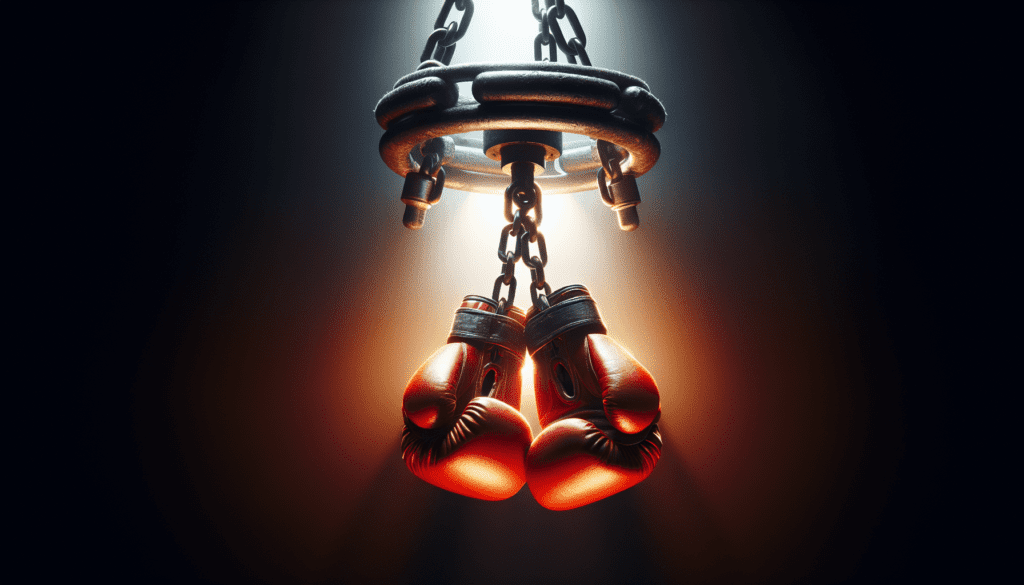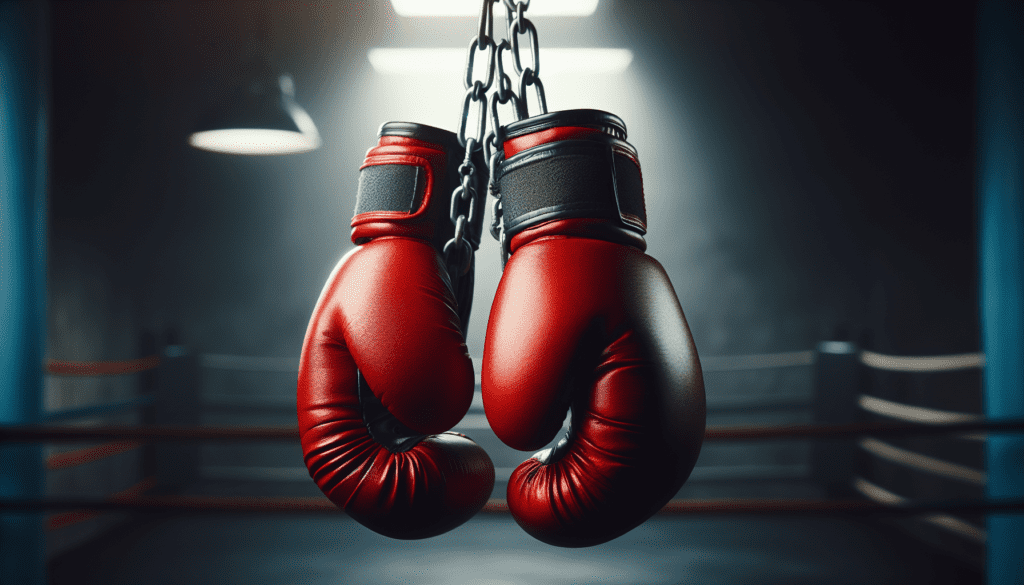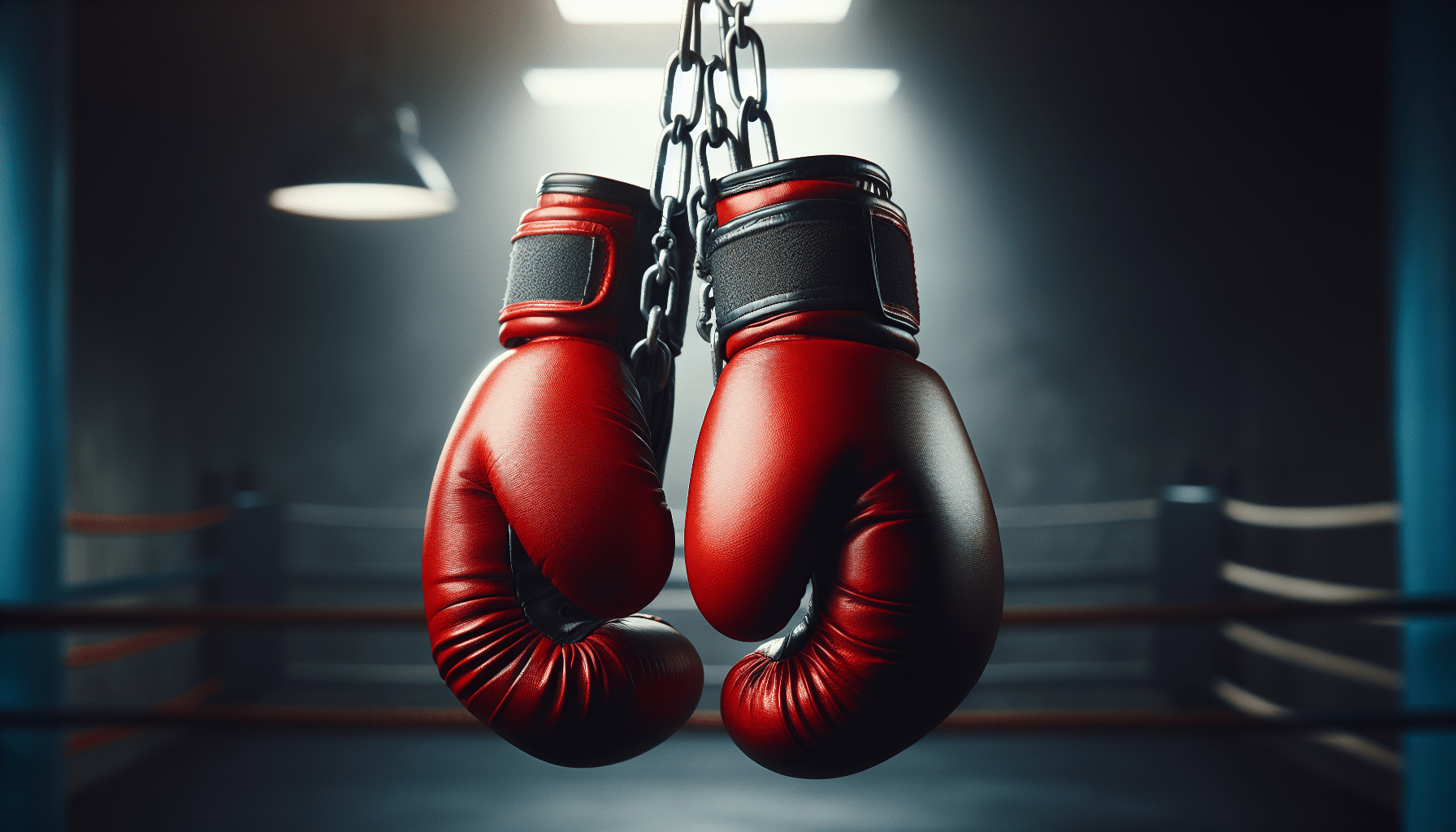Ready to take on the world of mixed martial arts? Look no further! This article is your ultimate guide to learning MMA for beginners. Packed with top resources and websites, it provides everything you need to kickstart your journey as an aspiring MMA fighter. Whether you are new to combat sports or have some experience under your belt, this comprehensive guide will equip you with the knowledge and tools to hone your skills, understand the techniques, and navigate the exciting world of MMA. Get ready to step into the octagon and unleash your inner warrior!
Getting Started
Welcome to the exciting world of Mixed Martial Arts (MMA)! Whether you’re a complete beginner or have some prior experience in other combat sports, this comprehensive guide will set you on the right path to becoming a well-rounded MMA fighter. Before we dive into the details, let’s start by understanding the fundamentals of MMA and what you can expect on this journey.
Understanding MMA
MMA, or Mixed Martial Arts, is a full-contact combat sport that combines various striking and grappling techniques from disciplines such as boxing, Muay Thai, Brazilian Jiu-Jitsu, wrestling, and more. The goal is to defeat your opponent using a variety of skills both on the feet and on the ground. It requires a combination of physical attributes, technical proficiency, mental toughness, and strategic thinking.
Setting Goals
As with any endeavor, it’s important to establish goals when starting your MMA journey. Whether you aim to compete professionally, improve your self-defense skills, get in shape, or simply have fun, having a clear understanding of your objectives will help you stay motivated and focused throughout your training.
Finding a Gym
Finding the right gym is crucial for your MMA development. Look for a reputable gym or training facility that offers a comprehensive MMA program taught by experienced coaches and trainers. The gym should have a supportive and inclusive environment, suitable training equipment, and a variety of classes tailored for different skill levels.
Choosing the Right Equipment
Before you start training, you’ll need to invest in some essential equipment. This includes hand wraps, gloves, mouthguard, shin guards, and a groin protector. Depending on the gym’s requirements, you may also need a rash guard, grappling shorts, and protective headgear. Ensure that your equipment fits properly and offers adequate protection during training and sparring sessions.
Basic Movements and Techniques
To excel in MMA, you’ll need to develop a solid foundation of basic movements and techniques. The following aspects are crucial for your success in the sport:
Stance and Footwork
Having the correct stance and footwork is essential for maintaining balance, mobility, and proper positioning during combat. Learn the basic MMA stance and practice various footwork drills to improve your agility, coordination, and ability to move efficiently in all directions.
Striking Techniques
Striking techniques in MMA encompass punches, kicks, knees, and elbows. Focus on developing fundamental strikes such as jabs, crosses, hooks, roundhouse kicks, and front kicks. Learn proper striking mechanics, including generating power from your core and using proper hip rotation.
Defensive Techniques
In MMA, defense is just as important as offense. Mastering defensive techniques will help you avoid strikes and counter your opponent effectively. Learn how to block, slip, parry, and evade punches, kicks, and knees. Additionally, develop your clinch and grappling defense to avoid takedowns and submissions.
Takedowns and Throws
The ability to execute takedowns and throws is crucial for controlling the fight and dictating the location of the bout. Learn various takedowns and throws, such as double-leg takedowns, single-leg takedowns, and judo throws. Focus on timing, leverage, and proper body mechanics to successfully execute these techniques.
Ground Techniques
Ground fighting plays a significant role in MMA, as fights often end up on the mat. Brazilian Jiu-Jitsu (BJJ) is a key component of ground fighting, emphasizing submissions, positional control, and ground and pound. Learn basic BJJ techniques, including sweeps, submissions, escapes, and transitions, to become proficient on the ground.

Building Physical Fitness
To excel in MMA, you need to be physically fit. The following areas should be developed:
Cardiovascular Training
Cardiovascular training is essential for maintaining endurance during intense MMA fights. Engage in activities such as running, cycling, swimming, or circuit training to improve your cardiovascular capacity. High-intensity interval training (HIIT) is also beneficial for simulating the intensity of MMA bouts.
Strength and Conditioning
Building strength and improving overall conditioning is vital for explosive movements and resilience in MMA. Incorporate strength training exercises like weightlifting, bodyweight exercises, and functional movements to enhance your overall strength and power. Implement conditioning drills, such as sprints, kettlebell circuits, and plyometrics, to improve your stamina and muscular endurance.
Flexibility and Mobility
Flexibility and mobility are crucial for executing techniques with proper form and reducing the risk of injuries. Incorporate a regular stretching routine that focuses on major muscle groups involved in MMA movements. Additionally, incorporate mobility exercises to improve joint range of motion and functional movement patterns.
Endurance Training
Endurance training focuses on developing the ability to last through long bouts and multiple rounds. It involves a combination of cardiovascular training, strength and conditioning exercises, as well as targeted endurance drills specific to MMA movements. Incorporate activities like sparring rounds, grappling sessions, and circuit training to enhance your endurance capacity.
Developing MMA Skills
Once you have built a solid foundation of fitness and basic techniques, it’s time to polish your MMA skills and develop your fight sense. The following areas are crucial in this phase:
Shadowboxing and Bag Work
Shadowboxing is an essential training tool for refining technique, footwork, and movement patterns. It allows you to simulate fight scenarios and develop muscle memory. Bag work, on the other hand, helps you practice striking techniques with resistance. Utilize heavy bags, speed bags, and focus mitts to improve your power, accuracy, and timing.
Sparring and Drilling
Sparring provides realistic fight scenarios, allowing you to practice your skills against a live opponent. Start with controlled and supervised sparring sessions, gradually increasing the intensity as you become more comfortable and experienced. Drilling specific techniques and combinations with a partner can further enhance your muscle memory and timing.
Mental and Tactical Training
MMA is not just a physical sport; it requires mental toughness and strategic thinking. Engage in mental training exercises such as visualization, positive self-talk, and building mental resilience. Additionally, study fight footage, analyze techniques, and work on formulating effective game plans for different opponents and scenarios.
Combination Building
In MMA, the ability to seamlessly flow between different strikes, takedowns, and grappling techniques is key. Practice chaining together various combinations and transitions to increase your offensive versatility and keep your opponent guessing.
Improving Timing and Distance
Timing and distance control are essential for successful strikes, takedowns, and counters. Work on drills and exercises that improve your ability to gauge distance accurately and time your attacks and defenses effectively. Develop your understanding of ranges and implement strategies to control the distance during a fight.

Mental Preparation and Strategy
Mental preparation and strategic thinking are crucial to your success in MMA. The following areas are vital for psychological readiness:
Mental Toughness
MMA is a physically and mentally demanding sport, requiring mental toughness to overcome challenges and push through adversity. Develop mental toughness through meditation, visualization, positive self-talk, and the ability to stay focused and composed under pressure.
Visualization and Focus
Visualization helps you mentally rehearse different fight scenarios, improving your ability to react quickly and effectively. Practice visualizing successful techniques, fight strategies, and overcoming obstacles. Work on improving your focus and concentration during training and fight situations.
Strategic Thinking
Developing strategic thinking involves analyzing your opponents, identifying their strengths and weaknesses, and developing a game plan that capitalizes on your strengths while exploiting their vulnerabilities. Study different fighting styles and techniques to expand your overall understanding of martial arts.
Gameplan Development
Every fighter should have a game plan tailored to their strengths and opponents. Work with your coaches to formulate a strategy for each fight, taking into consideration your opponent’s style, weaknesses, and tendencies. Adaptability and the ability to adjust the game plan during the fight is also essential.
Reading Opponents
Being able to read your opponent during a fight is a valuable skill. Pay attention to their body language, footwork, and striking patterns. Look for openings and weaknesses to exploit while staying mindful of their counters. This skill comes with experience and studying different fighting styles.
Understanding Rules and Regulations
To participate in MMA fully, you must have a clear understanding of the rules and regulations governing the sport. The following areas are important to familiarize yourself with:
Recognizing Fouls
MMA has specific rules and regulations regarding what is considered legal and illegal during a fight. Educate yourself on the fouls that may result in penalties and disqualification, such as eye gouging, strikes to the groin, and strikes to the back of the head.
Scoring Systems
Understanding the scoring system used in MMA fights is essential to evaluate your performance and grasp how judges determine winners. Familiarize yourself with the scoring criteria, which typically includes effective striking, grappling, aggression, and octagon control.
Weight Divisions
MMA fights are categorized into weight divisions to ensure fair competition and safety. Each weight division has specific weight limits that fighters must adhere to before a fight. Understand the weight divisions and find the one that suits your body type and training goals.
Match Formats
There are various formats in which MMA fights take place, such as amateur and professional bouts. Familiarize yourself with different match formats, including the number of rounds, time limits, and rules specific to each format.
Responsibilities of Referees and Judges
Understanding the roles of referees and judges will help you navigate the fight environment. Referees ensure fighter safety, enforce the rules, and make decisions regarding fouls and stoppages. Judges, on the other hand, score the fight based on the fighters’ performances in different aspects of the sport.
Safety and Injury Prevention
Safety should be a top priority in MMA training and competition. The following measures should be taken to ensure your well-being:
Warming Up and Cooling Down
Proper warm-up and cool-down routines are crucial for injury prevention and optimal performance. Prior to training or fights, engage in dynamic warm-up exercises to increase blood flow, loosen up muscles, and enhance joint mobility. Similarly, perform static stretches during the cool-down phase to aid in muscle recovery and flexibility.
Proper Technique Execution
Executing techniques with proper form and technique significantly reduces the risk of injury. Focus on learning and refining proper technique from qualified coaches. Be mindful of details such as foot placement, body alignment, and proper weight distribution during strikes, takedowns, and submissions.
Protective Gear
Wearing appropriate protective gear is essential for minimizing the risk of injuries. Invest in high-quality equipment such as mouthguards, hand wraps, gloves, shin guards, and groin protectors. Ensure that protective gear fits properly and is in good condition to provide adequate protection.
Rest and Recovery
Rest and recovery are essential for allowing your body to heal and adapt to the physical demands of MMA training. Incorporate rest periods into your training schedule and prioritize sleep to optimize recovery. Additionally, use recovery techniques such as ice baths, foam rolling, and sports massages to reduce muscle soreness and prevent overuse injuries.
Recognizing and Dealing with Injuries
Despite taking precautionary measures, injuries can still occur in MMA. Learn to recognize the signs of common injuries and have a plan to deal with them. Seek medical attention when needed and follow appropriate rehabilitation protocols to ensure a speedy recovery.
Nutrition and Weight Management
Proper nutrition and effective weight management are crucial for optimal performance in MMA. Consider the following aspects:
Importance of Proper Nutrition
Nutrition plays a vital role in fueling your training, optimizing recovery, and supporting overall health. Eat a well-balanced diet that includes an adequate amount of protein, carbohydrates, and healthy fats. Prioritize nutrient-dense foods such as lean meats, fruits, vegetables, whole grains, and healthy fats.
Macro and Micronutrients
Understanding the importance of macro and micronutrients will help you make informed dietary choices. Macros, including proteins, carbohydrates, and fats, provide energy and support muscle repair. Micronutrients such as vitamins and minerals are essential for optimal bodily functions. Ensure you have a well-rounded diet that fulfills your nutrient requirements.
Weight Cutting Strategies
Weight cutting is common in MMA to compete in specific weight divisions. However, it should be done safely and under the guidance of professionals. Work with coaches and nutritionists to develop a weight cutting strategy that takes into account your health, performance, and recovery.
Hydration
Proper hydration is vital for performance, recovery, and overall health. Stay hydrated before, during, and after training sessions and fights. Monitor your urine color as a general indicator of hydration status, aiming for a light yellow color.
Supplementation
Supplements can be a useful addition to your nutrition regimen, but they should not replace a well-balanced diet. Consult with a qualified nutritionist or healthcare provider to determine if any supplements are necessary for your specific needs.
Learning from Resources and Websites
In addition to training at a gym, there are various online resources available to help you develop your MMA skills. Consider the following platforms:
Top MMA Websites
Several websites cater specifically to MMA enthusiasts, offering articles, training tips, news, and analysis. Websites like UFC.com, MMA Junkie, Sherdog, and Bloody Elbow are just a few examples of the wealth of information available online.
Online Courses and Tutorials
Numerous online platforms offer comprehensive courses and tutorials taught by experienced MMA fighters and coaches. These courses cover a wide range of topics, from basic techniques to advanced strategies. Consider platforms like Udemy, Gracie University, or Evolve MMA for online learning opportunities.
YouTube Channels
YouTube is a treasure trove of free instructional videos, fight analysis, and interviews with MMA fighters and trainers. Channels like MMAFighting, BJJ Fanatics, and UFC offer a vast collection of content for beginners to advanced practitioners.
Podcasts
Podcasts provide an excellent way to gain insights from industry experts and hear discussions on various MMA topics. Tune in to podcasts like “The Joe Rogan Experience,” “Ariel Helwani’s MMA Show,” or “The MMA Hour” for informative and entertaining discussions.
News and Analysis Sites
Stay up to date with the latest MMA news, fight cards, and analysis by visiting websites like MMA Fighting, ESPN MMA, or UFC.com. These sites provide detailed coverage and analysis of upcoming fights and events, ensuring you’re always in the know.
Progress Tracking and Skill Assessment
Monitoring your progress and assessing your skill level is crucial for continuous improvement. Consider the following methods:
Recording Training Sessions
Recording your training sessions and sparring bouts allows you to review and analyze your technique, identify areas for improvement, and track your progress over time. Set up a camera or smartphone to capture your sessions and review them with your coaches or training partners.
Keeping a Training Journal
Maintaining a training journal helps you track your workouts, reflect on your performance, and set specific training goals. Record details such as the techniques you practiced, rounds sparred, strength and conditioning exercises, and any observations or notes from your coaches.
Seeking Feedback and Evaluation
Regularly seek feedback and evaluation from your coaches, training partners, and experienced fighters. Embrace constructive criticism and use it to refine your techniques and identify areas for improvement. Take advantage of opportunities for private lessons or personalized training to address specific weaknesses.
Competing in Amateur Tournaments
Competing in amateur tournaments provides valuable experience and helps gauge your skills against other MMA fighters. Participating in these events allows you to test your training and preparation while gaining confidence in the competitive environment.
Rank and Belt Systems
Some MMA gyms incorporate rank and belt systems to recognize skill level and progression. Work towards achieving higher ranks or belts by demonstrating proficiency in your techniques, sparring ability, and understanding of the sport. Always consult with your coaches to understand the specific requirements and expectations for each rank.
As you embark on your journey to become an MMA practitioner, remember that progress takes time, dedication, and consistency. Embrace the challenges with determination and a positive attitude. By following the guidance outlined in this comprehensive guide, you’ll build a solid foundation of skills, physical fitness, and mental preparedness, propelling you towards success in the world of MMA. Good luck!

